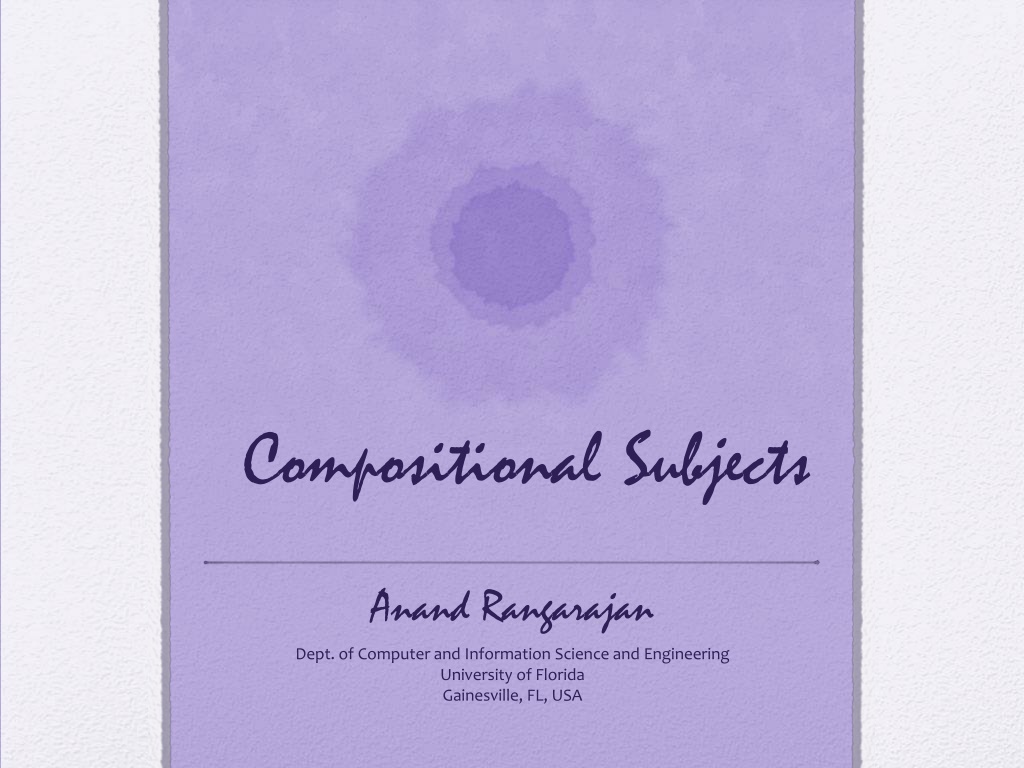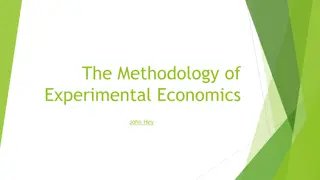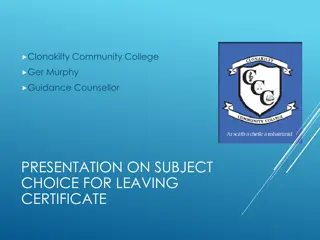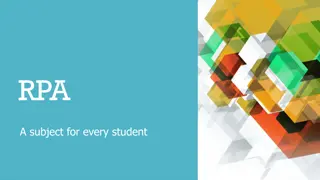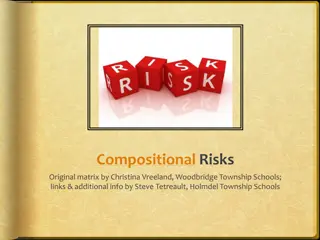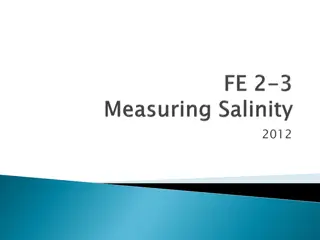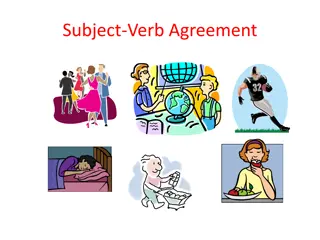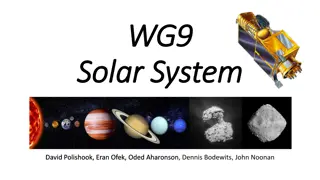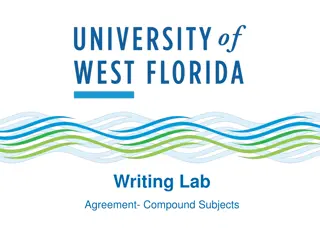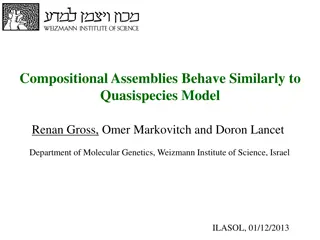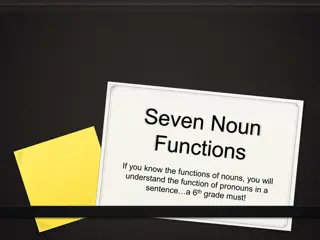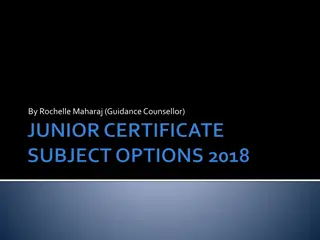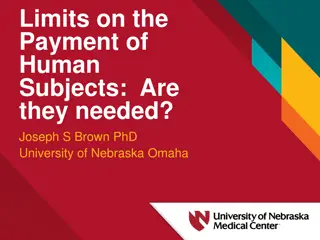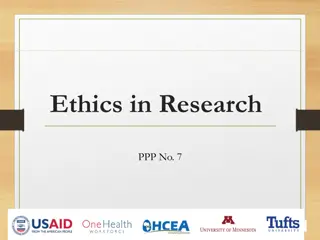Exploring the Intersection of Physicalism, Panpsychism, and Experience
Delve into the complexities of accommodating experience within physicalism, considering emergence, panpsychism, and the combination problem. The discussions touch on fundamental compositionality, contrasting compositions versus combinations, and exploring the thin subjects of phenomenology as subjects of experience.
Uploaded on Dec 14, 2024 | 0 Views
Download Presentation

Please find below an Image/Link to download the presentation.
The content on the website is provided AS IS for your information and personal use only. It may not be sold, licensed, or shared on other websites without obtaining consent from the author. Download presentation by click this link. If you encounter any issues during the download, it is possible that the publisher has removed the file from their server.
E N D
Presentation Transcript
Compositional Subjects Anand Rangarajan Dept. of Computer and Information Science and Engineering University of Florida Gainesville, FL, USA
Realistic physicalism & experience How do we accommodate experience (Hard Problem)? When more radical alternatives like idealism or mysticism are ruled out, only physicalism remains. Emergence - most popular physicalist approach. Complexity problem: When does experience emerge? Does realistic physicalism entail panpsychism? Combination problem: How do qualia combine? Are these the only alternatives at present?
Panpsychism, Emergence & Physicalism Physicalism Panpsychism Emergence Complexity problem Combination problem Conservative option Emergence Radical option Reformulate physicalism Conservative option Panpsychism
Physicalism Everything is physical : explanatory gap. Can physicalism be expanded to accommodate consciousness? Source: esa.int Why is it accompanied by experience? (Chalmers) Forced into speculative ontology because of hard problem.
Physicalism = Physicalism + X Add ingredient X to physicalism. Physicalism should remain physicalism despite X. Re-examine panpsychism and emergence in light of new physicalism. It is accompanied by experience because X is always accompanied by experience.
A fundamental compositionality A counter-intuitive proposal. Assertion: Physicalism + fundamental compositionality accompanied by experience. Letter but not the spirit of panpsychism: fundamental but not pan. Spirit but not the letter of emergence: non-reductive but fundamental. Physicalism New ingredient X Experience Subjects Compositionality
Compositions versus Combinations Fundamental composition of basic elements contrasted with combinations of basic elements. Phenomenology Fundamental Composition Chemistry Combination Basic Elements Basic Elements Physics Physics Fundamental composition accompanied by experience
Phenomenology: Thin Subjects Persons and selves as subjects of experience (SoE) (Lowe). A subject of experience is something that exists only if experience exists of which it is a subject (Strawson). The thinking or the existence of the thought and the existence of my own self are one and the same (Kant). Thin subjects (SESMET): subjects that persist for brief periods of time, a gappy process (Strawson). mere self in Mahayana Buddhism (Tsongkhapa). Notion goes back at least to Frege in the west.
Restricted Compositionality Principle (RCP) New ingredient X Physicalism Experience Subjects Compositionality Kathrin Koslicki s work. m1, ,mn m1, ,mn RCP: Some objects compose an object O, of kind K, just in case satisfy the constraints dictated by some formal components, associated with objects of kind, K. f1, , fn Weak Supplementation Principle. Avoid proliferation of sui generis relations. Relies on ontology of natural kinds. Material and formal parts of object (composition).
SoE as Natural Kinds Restricted compositionality principle requires commitment to ontology of natural kinds. SoE as a natural kind term: Appeal to same-kind relation between SoE objects. Non-descriptive and does not require rigidity (Koslicki). Requires mechanism for picking out same kind object. Intersubjectivity as mechanism? Clearly controversial. I see You, Y All, namaste. Second person as foundation for SoE? Could be wrong but more importantly could also be right. SoE in psychology: analogous to species in biology. Different SoE: prehension, sensation, emotion, cognition, visualization.
Subject of Experience (SoE): Sensation An irreducible gap between physics and sensation which physiology cannot bridge , Richard Gregory, Mind in Science, 1982. SoE of sensation: SoEs a sensation natural kind object. Intersubjective mechanism: I feel your touch, I see you touch something. Formal parts: Relation between physiology (old physical) and new object. SoEs: composed of low-level material entities. same kind sensation relation between different SoEs. When SoEs thin subject arises, accompanied by sensation. Fundamental Question: Sensation separated from perception, emotion, cognition, visualization - hence SoEs ?
Oppositions Substance Tropes Experience implies subjects of experience (SoE) Experience implies incompleteness of physical Physicalism does not imply that microphysicalism is true (H ttemann) Everything is physical or entailed by the physical (Stoljar) Mid-level compositionality principle? SoE are physical (compositions) Compositions have material and formal parts Relations between old physical properties and experiential properties? Formal parts require commitment to ontology of natural kinds Tropes-based natural kinds to help avoid sui generis relations? Mid-level properties corresponding to bundles of experience? SoE are natural kind objects
Objections Denied by eliminativists. There is experience (Chalmers). Denied by materialists and some panpsychists. Experience implies (thin) subjects of experience (Strawson). Denied by interactionist dualists. Everything is physical or entailed by the physical (Stoljar). Very controversial and denied by many physicalists. Physicalism does not imply microphysicalism (H ttemann). Denied by idealists and property dualists. SoE are physical compositions of a certain natural kind (foll. Koslicki).
Discussion Why is it accompanied by experience? (Chalmers). Everything is physical or entailed by the physical (Stoljar). Until more is said it amounts to simply dismissing of the intuition that the experiential cannot emerge from the non-experiential (Strawson). Expand physicalism: Physicalism = Physicalism + y (Montero). Compositionality: There exists a y the x s compose if and only if the activity of the x s compose a life (van Inwagen). Experience implies a subject of experience (Lowe). Subjects of experience (SoE) are physical compositions of a certain natural kind (following Koslicki).
References 1. The Conscious Mind: In Search of a Fundamental Theory, David J. Chalmers, Oxford University Press, 1996. 2. Ignorance and Imagination: The Epistemic Origin of the Problem of Consciousness, Daniel Stoljar, Oxford University Press, 2006. 3. Physicalism, Daniel Stoljar, Routledge, 2010. 4. Selves: An essay in revisionary metaphysics, Galen Strawson, Clarendon Press, 2009. 5. Subjects of Experience, Edward J. Lowe, Cambridge University Press, 1996. 6. Material Beings, Peter van Inwagen, Cornell University Press, 1990. 7. What s Wrong with Microphysicalism, Andreas H ttemann, Routledge, 2004. 8. Everything Must Go, James Ladyman and Don Ross with David Spurrett and John Collier, Oxford University Press, 2010. 9. The Structure of Objects, Kathrin Koslicki, Oxford University Press, 2008. 10. Natural Kinds and Conceptual Change, Joseph LaPorte, Cambridge University Press, 2004. 11. Objects and Persons, Trenton Merricks, Clarendon Press, 2001. 12. More Kinds of Being, Edward J. Lowe, Wiley-Blackwell, 2009.
Thank You We are indebted to Leopold Stubenberg for pointing out Koslicki s work All mistakes are of course ours
Objections New ingredient merely motivated by subjects of experience. Freedom for adding compositions to physicalism not fleshed out. Experience epiphenomenal due to causal closure? What actually distinguishes compositions from combinations?
Compositions acting on possibilities Current quantum field theories: evolution of scalar and vector fields in time. Instead we envisage a basic physicalism with a restriction operator on set of possibilities. Compositionality: further restriction on possibilities accompanied by experience. Physicalism in terms of operators restricting sets of possibilities is almost surely wrong (and goes beyond philosophy).
Substances versus properties Approach raises intriguing picture of substance (SoE) linked to properties via compositionality relation. Not property or substance dualism but weird hybrid. No worry over natural kinds if there is only one kind of substance, namely, SoE. Substance introduced only to accommodate experience seems jury rigged. May be democratizing Spinoza (matter and mind as properties of single substance/God).
